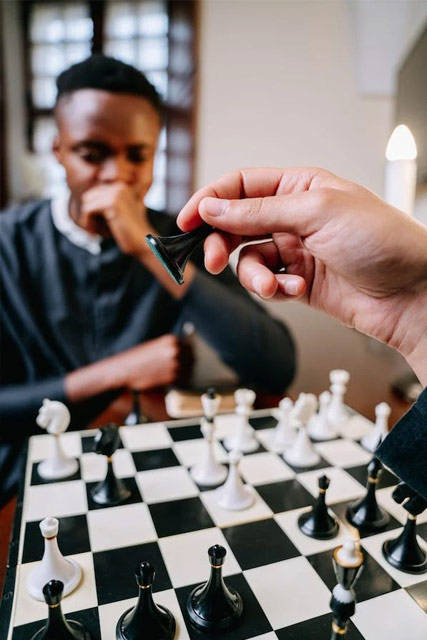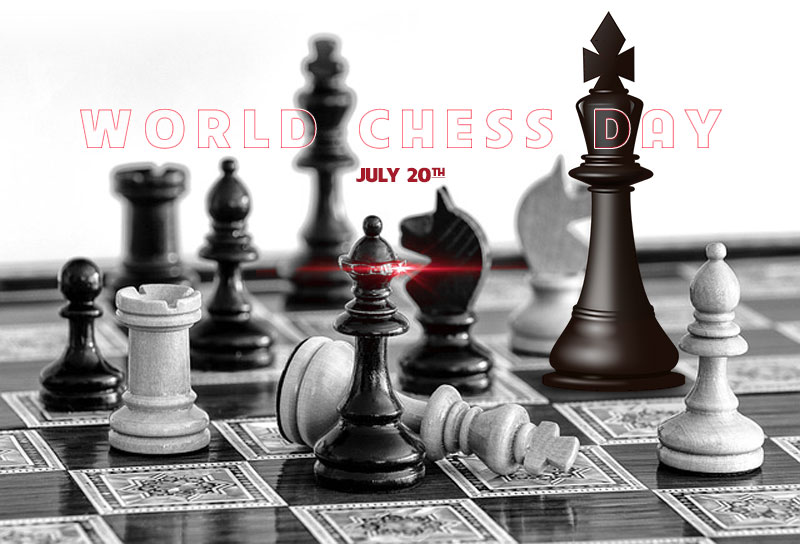Chess, the ancient game of kings, has transcended borders, cultures, and time, captivating minds and hearts for centuries. Every year on July 20th, chess enthusiasts around the world come together to celebrate World Chess Day, a special occasion dedicated to the promotion and appreciation of this strategic and intellectually stimulating pastime. This day not only serves as a reminder of chess’s historical significance but also highlights its continued relevance in the modern world.
Table of Contents
The Origins of Chess: A Royal Heritage
The origins of chess can be traced back to ancient India, where it was known as “Chaturanga” around the 6th century AD. From there, the game spread to Persia, and its name evolved to “Shatranj.” It eventually reached Arab lands and, during the Islamic Golden Age, it gained popularity and spread across Europe through trade and cultural exchanges.
The game’s enduring appeal lies in its inherent simplicity and complexity. Chess is played on an 8×8 square board with 64 alternating light and dark squares. Each player commands an army of 16 pieces, including pawns, rooks, knights, bishops, a queen, and a king. The objective is to checkmate the opponent’s king, meaning the king is under attack and cannot escape capture.
A Game of Skill and Strategy
Chess is much more than just a game; it is a mental battlefield where players engage in a battle of wits, employing strategies, tactics, and foresight. It demands critical thinking, logical reasoning, creativity, and the ability to plan ahead. The game fosters mental acuity and sharpens the intellect, making it an excellent tool for cognitive development for players of all ages.
Notable chess players, both past and present, have achieved legendary status for their exceptional skills. From the historical brilliance of Paul Morphy and Emanuel Lasker to the modern-day dominance of Garry Kasparov and Magnus Carlsen, chess has seen its fair share of prodigies and masterminds.
A Universal Language and a Global Community

One of chess’s most remarkable features is its ability to transcend linguistic and cultural barriers. Regardless of nationality or language, chess players can sit across the board from each other and engage in a battle of the minds, communicating through the language of moves and positions. This unique aspect has led to chess becoming a truly global sport, promoting friendship and understanding between people from diverse backgrounds.
The advent of the internet and online chess platforms has further expanded the game’s reach, allowing players from all corners of the world to compete with each other virtually. This interconnectedness has fostered a thriving global community of chess enthusiasts, with international tournaments, clubs, and forums that celebrate the camaraderie and sportsmanship that chess instills.
Chess in Education and Beyond
Recognizing the educational benefits of chess, many schools and educational institutions have integrated it into their curriculum. Chess not only helps improve cognitive abilities but also teaches valuable life skills such as patience, resilience, and decision-making. Additionally, studies have shown that regular chess players tend to perform better academically, particularly in mathematics and problem-solving subjects.
Beyond education, chess has also played a significant role in promoting diplomacy and peace. Throughout history, it has been used as a tool for cultural exchange and international cooperation, bringing people together across political divides. The “Chess for Peace” movement, for instance, aims to foster friendship and understanding between nations by organizing chess events and exchanges.
Celebrating World Chess Day
World Chess Day is an opportunity for chess enthusiasts of all levels to celebrate their passion for the game. Whether you’re a seasoned grandmaster or a curious beginner, this day encourages participation in chess-related activities, tournaments, workshops, and exhibitions.
Local chess clubs and organizations often organize special events to mark the occasion, welcoming newcomers and encouraging them to experience the joys of playing chess. Chess-themed lectures, puzzles, and simultaneous exhibitions by skilled players are common activities that take place on this day.
Moreover, social media platforms buzz with chess-related content, creating a global conversation around the game. Chess enthusiasts, from beginners to experts, come together to share their experiences, knowledge, and love for the ancient game.
Conclusion
World Chess Day is a celebration of a game that has withstood the test of time, transcended borders, and connected people from all walks of life. Beyond its historical significance, chess remains an invaluable tool for mental development, promoting critical thinking, and teaching valuable life skills. As we celebrate this day, let us acknowledge the profound impact chess has had on humanity and its potential to continue fostering intellectual growth, understanding, and friendship worldwide. So, on this World Chess Day, let’s set up our boards, make our moves, and revel in the rich tapestry of the game of kings!
Author
Stay connected for new publications, events, and more.







More Stories
Le pape Léon XIV : un pontife historique qui jette un pont entre les continents et les cultures
What Happens When a Pope Dies
Le Prix de la Liberté : 17 Avril 1825, une Ordonnance Injuste. Déclaration de Macron